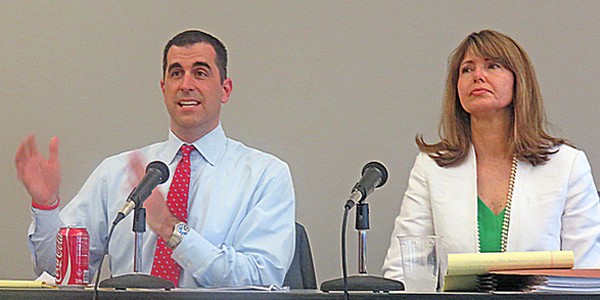 Jackson Baker
Jackson Baker
Lawyer Lang Wiseman and Supreme Court Justice-designate Holly Kirby make the case for Amendment 2 on judicial appointment
It is one of the laments of local political junkies that the number of seriously contested candidate races on the November 4th ballot is somewhat restricted, to say the least. Oh, they exist here and there — in a hot race for mayor of Germantown between Mike Palazzolo and George Brogdon, for one example, and one in Bartlett between incumbent Bubba Pleasant and challenger Mick Wright, for another.
And, of course, Charlotte Bergmann and George Flinn, two Republican never-say-die types would insist on the competitive nature of their races — for the 9th District congressional seat and the District 30 state Senate seat, respectively. And so, for that matter, would Dwayne Thompson, the valiant Democrat who is running against incumbent state Representative Steve McManus in House District 96, one of the reddest Republican areas of Shelby County.
There is, moreover, a race of sorts in the mainly rural 8th Congressional District, which these days includes a generous slice of eastern Shelby County within its far-flung western-Tennessee sprawl. One Wes Bradley, a sheriff’s deputy from Paris, up near the Kentucky border, traveled into Germantown (yes, Germantown) not long ago to make a rousing speech to a group of Democrats (yes, Democrats) in support of his race against well-heeled Republican Stephen Fincher of Frog Jump, who seeks a third term in a district that, like so much of Tennessee, switched abruptly to GOP control in 2010 and hasn’t yet looked back.
Most political observers find it hard to share the optimism of Bergmann, Flinn, Thompson, and Bradley, since each is bucking a well-established tide favoring the opposition, but there is a caveat that needs to be taken seriously — which is that the very paucity of competitive races on the Shelby County ballot would almost seem to put the coming vote in the category of a special election, with all the attendant lack of public interest that could be exploited by a determined stealth candidate.
Case in point: Current Republican Shelby County Commissioner Terry Roland is as red a Republican as they make ’em, and he very nearly upset Ophelia Ford in a 2005 special election contest for the state Senate seat vacated by the Democrat’s brother John Ford, a Tennessee Waltz indictee.
Factors such as money and organization could help offset the expected outcome to some degree. In his race against Democrat Sara Kyle for the seat just vacated by her husband, newly elected Shelby County Chancellor Jim Kyle, Flinn, a famously wealthy businessman/physician, can self-finance ad infinitum as he has in several prior races. And Bergmann may have a modest amount of financial support, too, though nothing to compare with the resources of incumbent Democratic Congressman Steve Cohen, a formidable candidate and veteran fourth-termer who has an unspent $1 million or more carried over from previous campaigns.
But what really makes the hopes of such long-odds challengers look unrealistic is the fact that there are indeed some choices on the November 4th ballot that should jack up the vote totals enough to reduce the prospect for any freak outcomes.
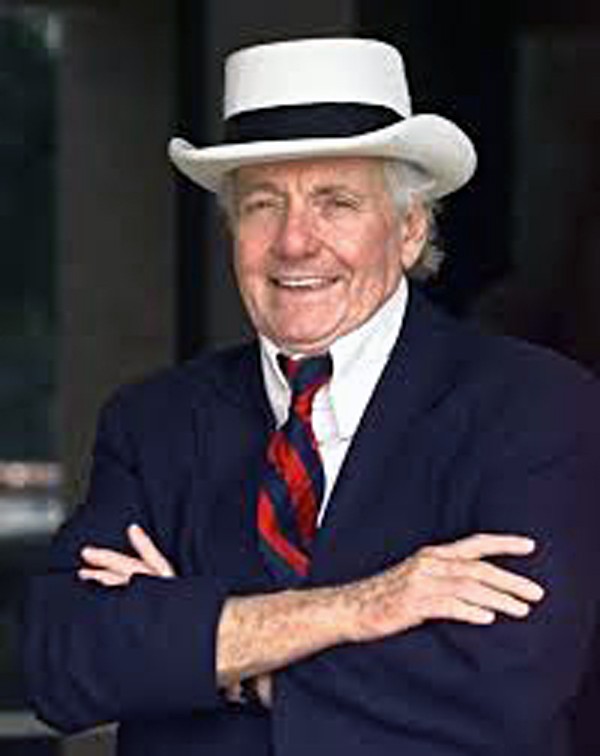
John Jay Hooker, sworn foe of Amendment 2
No one expects Republican Governor Bill Haslam to be seriously troubled by Democratic gubernatorial nominee Charlie Brown, a retired East Tennessee construction worker who has the late cartoonist Charles Schulz to thank for the name recognition that got him through a crowded but little-noticed Democratic primary. Brown will do well to stay even with such other also-runnings as Isa Infante of the Green Party and legendary — if lapsed from his glory days — independent John Jay Hooker.
But Democrat Gordon Ball, the successful Knoxville lawyer who is challenging veteran GOP veteran Lamar Alexander for the latter’s U.S. Senate seat, is wealthy enough to do some self-financing of his own, and he displayed some chops in a hotly contested primary battle with fellow Knoxville attorney Terry Adams.
Alexander is, as they say, highly favored (and is in possession of several million dollars in campaign cash, to boot), but Ball cites for the record both that the incumbent finished below 50 percent in his August primary against Flinn and the Tea Party backed Joe Carr and that a current poll shows Alexander to be still below 50 percent — though leading — in his race against Ball, Libertarian candidate Tom Emerson, and a passel of others.
(For more on the U.S. Senate race and assorted other contests, see “Alexander and Ball in Heated Tennessee Senate Race” in this weeki’s “Politics” column.)
CONSTITUTIONAL AMENDMENTS
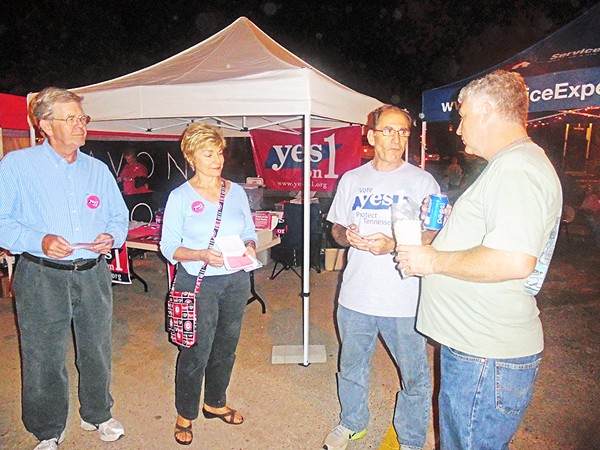 Jackson Baker
Jackson Baker
Proponents of Amendment 1 with passer-by at Bartlett Festival
Again, though, the galvanizing factor in this election — and that which makes a meager special-election turnout unlikely — lies in the voting for four proposed amendments to the Tennessee Constitution, three of which are potential bringers of serious, even transformational, change to the state.
By far the most controversial of the proposed ballot issues is Amendent 1, which proponents — who include Governor Haslam and other influential members of the predominant Republican state establishment — say is necessary to amend a 2000 state Supreme Court ruling that affords more protection of abortion rights in Tennessee than the federal courts allow for the nation at large.
Opponents of the amendment — who include the chief figures of the Tennessee Democratic Party, including Ball, Cohen, and state party Chairman Roy Herron — see Amendment 1 as nothing less than the proverbial “slippery slope,” designed to turn back the clock on abortion rights or ultimately to discard them altogether.
Even some neutral observers find troubling the Amendment’s last clause — which expressly opens the way to legislative revision of the accustomed preconditions for abortion in cases of “rape, incest, or threats to the life of the mother.”
In any case, the amount of money invested on the issue seems destined to rise well above a million dollars for either side, with a major player being Planned Parenthood — which in recent years has been fighting for its life, literally, against a hostile state GOP establishment bent on defunding or disempowering it.
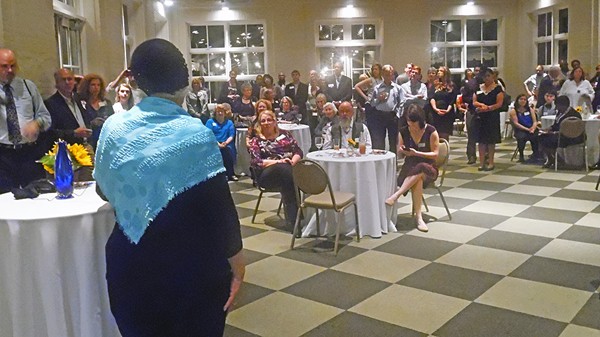 Jackson Baker
Jackson Baker
Former state Senator Beverly Marrero makes the case against Amendment 1
(For a fuller discussion of Amendment 1,
and some of the issues attending it, see Bianca Phillips’ story, p. 21.)
Amendment 2, which concerns the mode of appointing state appellate judges, is seen as equally crucial by its adherents, who include numerous legal lights and an impressively bipartisan cast of characters (both Haslam and his Democratic predecessor, Phil Bredesen, are making the rounds for the amendment).
Much like Amendment 3, which would explicitly ban a state income tax, Amendment 2 is designed to eliminate an ambiguity in the state Constitution, which stipulates that appellate judges must be “elected by qualified voters of the state.” To those who take the Constitution literally — like the aforementioned Democratic maverick Hooker, once a leading political figure but now an almost hermetically obsessive one — that means to vote for appellate judges in the same way that Tennesseans vote for state trial judges.
Others believed in the legality of the state’s current “Tennessee Plan” — among them, the members of a special Supreme Court panel (including two Memphians, lawyer Monica Wharton and Criminal Court Judge Bobby Carter) that, earlier this year, validated it. The plan allowed for a special nominating commission to present names to the governor, who in turn could select from the names or call for a new list. Whoever got appointed would be subject to a statewide yes/no retention vote at eight-year intervals.
Amendment 2 keeps to the same general format, though it eliminates the provision for a nominating commission and adds a new one requiring legislative approval of a gubernatorial appointment. Without an adverse vote by both chambers of the General Assembly within 60 days, the appointment becomes final.
The veto power given the legislature was the factor that garnered approval of the amendment from such current supporters as Lieutenant Governor Ron Ramsey and state Senate Judiciary Chairman Brian Kelsey of Germantown, the latter of whom is Amendment 2’s chief sponsor. Supporters of Amendment 2 warn that, if it is rejected, direct election, which has had its backers and which opponents warn would bring both big money and high-stakes politics to the appellate selection process, will once again be in the legislative hopper, with good prospects of success.
In something of a hat trick, Kelsey is also the main legislative sponsor of Amendment 3, which would ban a state income tax and a state payroll tax and potentially lead to the abolition of the currently legal Hall Income Tax on interest and While essentially acquiescent in the case of Amendment 2, Kelsey has been nothing short of zealous in shepherding Amendment 3 through the complicated process of approval by both legislative chambers in consecutive sessions in order to qualify for the ballot.
Though a state income tax was seriously pushed more than a decade ago by former Governor Don Sundquist, a Republican, and by the Democratic legislative leadership of the time, it aroused grass-roots resistance bordering on the fanatical and was finally blocked in July 2001 by a bona fide mob riot on the grounds and in the halls of the state Capitol.
Though the idea of an income tax still has its defenders — to some degree, in both parties — they are so clearly in the minority that virtually no one doubts overwhelming success for Amendment 3.
After all the sturm-und-drang involved in the first three amendments, the last one, Amendment 4, comes off as inconsequential and even a bit quaint. Basically, it loosens constitutional restrictions on state lotteries to permit charity raffles on behalf of veterans’ groups, and the chief threat to its success is an existing constitutional wrinkle that ties success or failure of an amendment to the number of votes cast in the gubernatorial race.
Basically, for a constitutional amendment to pass, it must garner a majority of the votes that is at least equal to the number of votes that would constitute a majority in the race for governor.
Given the essential no-contest aspect of the 2014 governor’s race, pro- and con- activists in the case of a particular amendment have advocated strategies making use of this constitutional quirk. Those wishing to defeat an amendment are being counseled to vote for somebody, anybody for governor at all costs, thereby raising the threshold for the amendment’s approval.
Conversely, proponents of an amendment might well take a pass on the governor’s race, thereby lowering the threshold of success.
OTHER BALLOT INITIATIVES
Wine-in-Grocery-Stores: After dint of much struggle in many legislative sessions, the wine-bibbers of Tennessee finally got the General Assembly to uncork the opportunity for them to purchase their fermented grape delights in grocery stores as well as in liquor stores per se.
There are several catches, though. One is that localities that already have
legalized retail liquor sales or bars and that want to permit such diversity are obliged to pass through two hoops — first, the establishment of a referendum on this fall’s ballot sounding out voter opinion on the merits of such an expansion of wine sales; secondly, the passage of the referendum.
Six of Shelby County’s legal municipalities — Memphis, Bartlett, Collierville, Germantown, Arlington, and Millington — are holding such referenda, couched in simple “for” or “against” choices on the question of “legal sale of wine at retail stores” within city limits. (Voters residing in the county’s other municipality, Lakeland, will find an alternate referendum on their ballot, on whether to approve “the legal sale of alcoholic beverages for consumption on the premises in city of Lakeland.” Should this referendum pass, Lakeland will qualify for a wine-in-grocery-stores referendum of its own on some future ballot.)
In the event a municipality should pass the referendum enabling wine sales in grocery establishments, several other catches come into play. One is that the grocery-store sales may not begin until July 1,
2016. Another mandates that retail food establishments within 500 feet of an established liquor store must wait another year, until July 1, 2017.
Yet another catch — a concession to big-box retailers — is that only grocery stores sized 1,200 square feet or greater may sell wine when the time comes.
Meanwhile, the liquor lobby, which has held sway in Tennessee virtually forever, won the right as of July 1st of this year to sell commercial beers, which are already available at most of them.
Civil-service-reform: An initiative on the ballot for Memphis voters asks them to decide whether to “1) increase the number of Civil Service Commission members; 2) make administrative updates to civil service hearing processes and procedures; and 3) Allow the Director of Personnel to consider performance as a measure for personnel evaluations.” Enough said.
Making Sense of Amendment 1
A guide to the history and rhetoric behind the ballot initiative that affects abortion rights.
By Bianca Phillips
“Nothing in this Constitution secures or protects a right to abortion or requires the funding of an abortion. The people retain the right through their elected state representatives and state senators to enact, amend, or repeal statutes regarding abortion, including, but not limited to, circumstances of pregnancy resulting from rape or incest or when necessary to save the life of the mother.”
That’s the language Tennessee voters will see on the ballot for Amendment 1 on Election Day. But what does that mean?
In a nutshell, a “Yes” vote would amend the Tennessee Constitution to allow the General Assembly to enact new laws or amend existing laws to further restrict a woman’s right to an abortion.
They could pass bans on abortion after 12 weeks of pregnancy, as some other states have done. Or they could require that all second trimester abortions be performed in hospitals. They could even go so far as to restrict abortions for women who have been raped or women who may die giving birth because of some health condition or complication.
Owen Phillips, a local OB/GYN appears in a television ad for the “Vote No on 1” campaign. In that commercial, she shares a story about a patient who had cancer and was told she might die if she kept her baby. That patient chose not to have an abortion, and she lost her life.
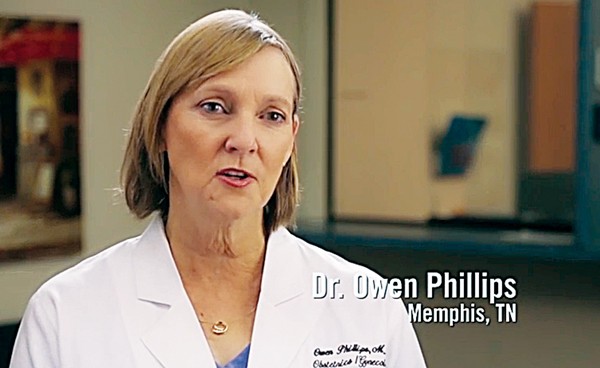 Screeenshot from ‘vote no on 1’ commercial
Screeenshot from ‘vote no on 1’ commercial
“I chose that story because whether or not she continued the pregnancy or had an abortion didn’t matter. What mattered is that she had a chance to sit down with her family and make the decision that was right for her,” Phillips said. “I think most people listening to that story would say, ‘Oh my gosh, I would not have chosen that.’ They see that their decision may have been different, and this law would take that decision-making out of their hands.”
Since the General Assembly has tried before (and failed, thanks to a U.S. Supreme Court decision), they could pass mandatory 72-hour waiting periods between a woman’s initial consultation with an abortion provider and her procedure. That would make obtaining abortions more difficult for women who are forced to travel across the state or from other states since they would have to take multiple days off work (and spend more money on travel expenses) for the entire process.
While Roe v. Wade provides some federal protection for abortion rights, it has been challenged before, and it could be challenged again in the future.
“I think [state legislators] will pass something that says abortion becomes illegal in Tennessee if Roe v. Wade is overturned,” said Ashley Coffield, president and CEO of Planned Parenthood Greater Memphis Region.
A “No” vote on Amendment 1 would leave things just as they are. But how are they? The “Vote Yes on 1” camp often touts that abortions in Tennessee are largely unregulated. But that’s not exactly true.
Tennessee has had parental consent laws in place for minors seeking abortions since the 1990s. And in 2012, the state legislature passed a law requiring doctors in reproductive health clinics to have hospital-admitting privileges in order for those clinics to provide abortions. When that restriction passed in 2012, two of the state’s abortion clinics were forced to shut down. Abortion in Tennessee, said Coffield, is “highly regulated.”
“We have to have a surgery treatment center license at Planned Parenthood, and we are subject to licensure and inspection by the Tennessee Department of Health,” Coffield added.
The licensing issue is a major talking point for proponents of Amendment 1. One who makes the case for the amendment is Lorene Steffes, a board member of Yeson1.org and the organization’s director of community education.
Steffes said in September, when announcing her campaign’s county chairs: “We even lack the legal basis for licensing and inspecting facilities where abortions are performed. The severity of this matter has inspired these 95 leaders to step forward to win Amendment 1 in November, and we are grateful for their dedication and support.”
Coffield says that the theory of abortions being unregulated in Tennessee is based on a state Court of Appeals ruling regarding licensure of ambulatory surgical treatment centers.
“The regulations in Tennessee for ambulatory surgical treatment centers say any health center that does a substantial number of abortions has to have a certificate of need from the state and a license and must be an ambulatory surgery center,” Coffield said. “But what is a substantial number of abortions?
“Nobody knows what that means, so a private physician [Gary Boyle] challenged that, and he won. And now he can do abortions in his private practices [in Nashville and Bristol] and not be a surgery center. This is where our opposition gets the idea that abortion is unregulated because private physicians can do it in their practices, and they don’t have to have a surgery treatment center license,” Coffield said.
That’s a loophole that Coffield said could easily be closed by the state without having a large effect on women’s access to abortion.
Tennessee currently has strong abortion rights protections in place. In the 1990s, the Tennessee General Assembly passed four restrictions on abortion — parental consent, a 72-hour waiting period, a requirement that second trimester abortions had to be performed in hospitals, and a requirement that physicians counsel patients with a script crafted by the state government.
In 2000, Planned Parenthood in Memphis and Nashville challenged those restrictions, and only the parental consent requirement was upheld. The other three were struck down on the basis that the Tennessee Constitution guarantees the right to privacy, even when it relates to a woman’s right to terminate her pregnancy.
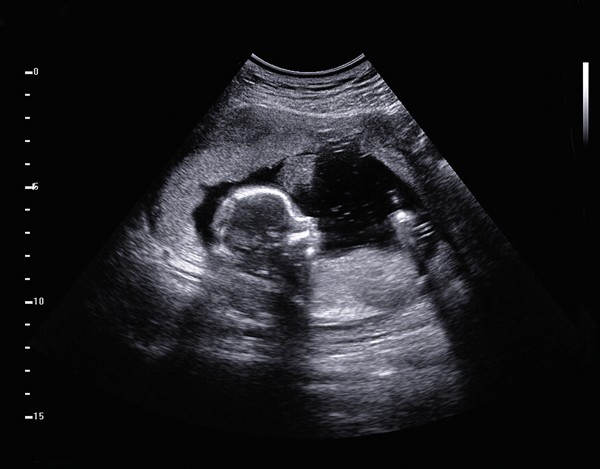 Mitar Gavric | Dreamstime.com
Mitar Gavric | Dreamstime.com 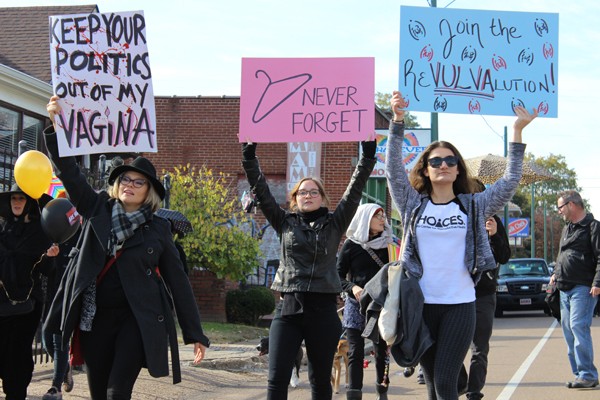 Alexandra Pusateri
Alexandra Pusateri 
 Greg Cravens
Greg Cravens 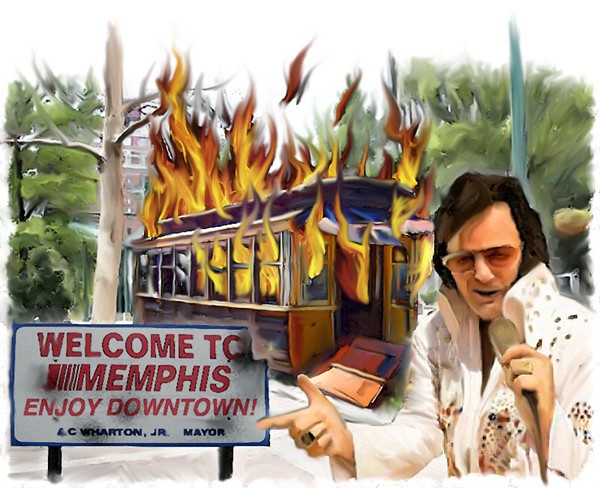 Greg Cravens
Greg Cravens 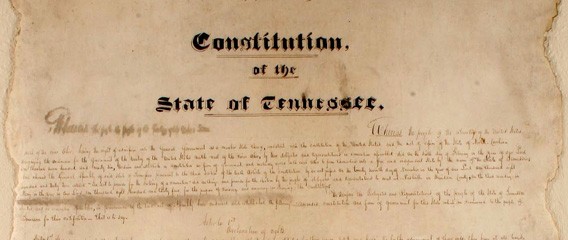
 Jackson Baker
Jackson Baker 
 Jackson Baker
Jackson Baker  Jackson Baker
Jackson Baker  Screeenshot from ‘vote no on 1’ commercial
Screeenshot from ‘vote no on 1’ commercial 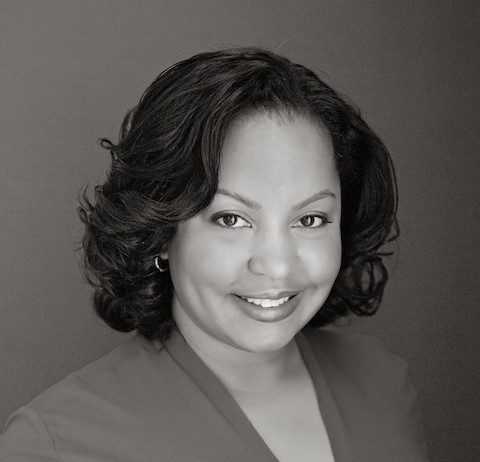

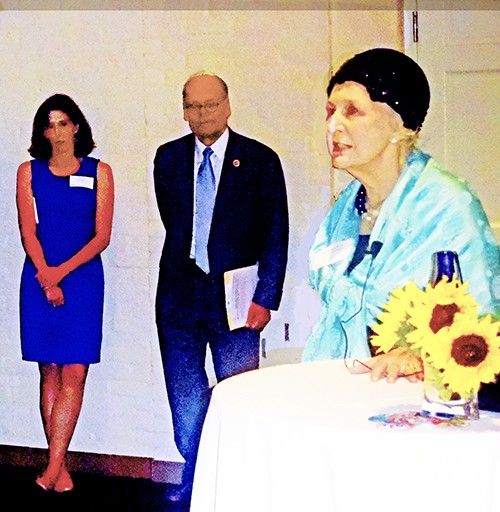 JB
JB 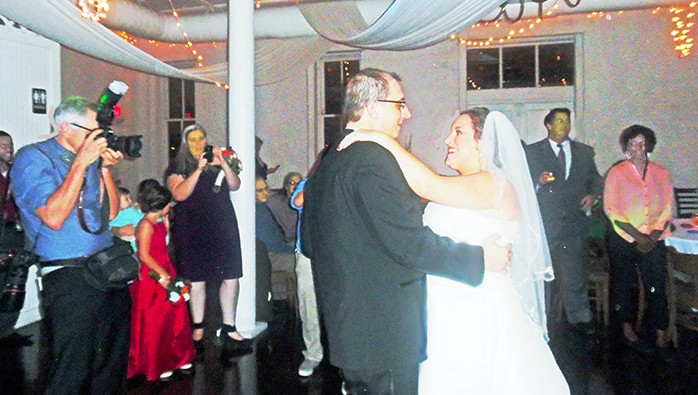 JB
JB